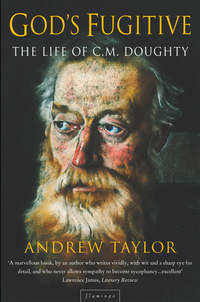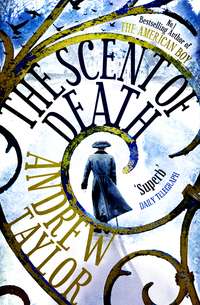
Полная версия
Fallen Angel
‘We were just talking about you,’ Stella announced with pride, as though the circumstance conferred merit on all concerned. ‘Great sermon.’ She dug a long forefinger into Michael’s ribcage. ‘I hope you’re cooking the Sunday lunch after all that.’
Sally took the coffee which Michael held out to her. ‘What happened to the old woman?’ she asked. ‘Did you find out where she lives?’
Stella shook her head. ‘She just kept telling us to go away and leave her in peace.’
‘Ironic, when you think about it,’ Michael said, apparently addressing his cup.
‘And then a bus came along,’ Stella continued, ‘and she hopped on. Short of putting an armlock on her, there wasn’t much we could do.’
‘She’s not a regular, then?’
‘Never seen her before. Don’t take it to heart. Nothing personal.’
Lucy tugged Sally’s arm, and coffee slopped into the saucer. ‘She should go to prison. She’s a witch.’
‘She’s done nothing bad,’ Sally said. ‘She’s just unhappy. You don’t send people to prison for being unhappy, do you?’
‘Unhappy? Why?’
‘Unhappy?’ Derek Cutter appeared beside Stella and ruffled Lucy’s hair. ‘A young lady like you shouldn’t be unhappy. It’s not allowed.’
Pink and horrified, Lucy squirmed behind her mother.
‘Sally tells me this was once the Lady Chapel,’ Michael said, diverting Derek’s attention from Lucy. ‘Times change.’
‘We were lucky to be able to use the space so constructively. And in keeping with the spirit of the place, too.’ Derek beckoned a middle-aged man, small and sharp-eyed, a balding cherub. ‘Sally, I’d like you to meet Frank Howell. Frank, this is Sally Appleyard, our new curate, and her husband Michael.’
‘Detective Sergeant, isn’t it?’ Howell’s eyes were red-rimmed.
Michael nodded.
‘There’s a piece about your lady wife in the local rag. They mentioned it there.’
Derek coughed. ‘I suppose you could say all of us are professionally nosy in our different ways. Frank’s a freelance journalist.’
Howell was shaking hands with Stella. ‘For my sins, eh?’
‘In fact, Frank was telling me he was wondering whether we at St George’s might form the basis of a feature. The Church of England at work in modern London.’ Derek’s nose twitched. ‘Old wine in new bottles, one might say.’
‘Amazing, when you think about it.’ Howell grinned at them. ‘Here we are, in an increasingly godless society, but Joe Public just can’t get enough of the good old C of E.’
‘I don’t know if I’d agree with you there, Frank.’ Derek flashed his teeth in a conciliatory smile. ‘Sometimes I think we are not as godless as some of us like to think. Attendance figures are actually increasing – I can find you the statistic, if you want. You have to hand it to the Evangelicals, they have turned the tide. Of course, at St George’s we try to have something for everyone – a broad, non-sectarian approach. We see ourselves as –’
‘You’re doing a fine job, all right.’ Howell kept his eyes on Sally. ‘But at the end of the day, what sells a feature is human interest. It’s the people who count, eh? So maybe we could have a chat sometime.’ He glanced round the little circle of faces. ‘With all of you, that is.’
‘Delighted,’ Derek replied for them all. ‘I –’
‘Good. I’ll give you a ring then, set something up.’ Howell glanced at his watch. ‘Good Lord – is that the time? Must love you and leave you.’
Derek watched him go. ‘Frank was very helpful over the conversion of the Lady Chapel,’ he murmured to Sally, patting her arm. ‘He did a piece on the opening ceremony. We had the bishop, you know.’ Suddenly he stood on tiptoe, and waved vigorously at his wife. ‘There’s Margaret – I know she wanted a word with you, Sally. I think she may have found you a baby-sitter. She’s not one of ours, but a lovely woman, all the same. Utterly reliable, too. Her name’s Carla Vaughan.’
On the way home to Hercules Road, Michael and Sally conducted an argument in whispers in the front of the car while Lucy, strapped into the back seat, sang along with ‘Puff the Magic Dragon’ on the stereo. It was not so much an argument as a quarrel with gloves on.
‘Aren’t we going rather fast?’ Sally asked.
‘I didn’t realize we were going to be so late.’
‘Nor did I. The service took longer than I expected, and –’
‘I’m worried about lunch. I left it on quite high.’
Sally remembered all the meals which had been spoiled because Michael’s job had made him late. She counted to five to keep her temper in check.
‘This Carla woman, Sal – the child minder.’
‘What about her?’
‘I wish we knew a bit more.’
‘She sounds fine to me. Anyway, I’ll see her before we decide.’
‘I wish –’
‘You wish what?’
He accelerated through changing traffic lights. ‘I wish she wasn’t necessary.’
‘We’ve been through all this, haven’t we?’
‘I suppose I thought your job might be more flexible.’
‘Well, it’s not. I’m sorry but there it is.’
He reacted to her tone as much as to her words. ‘What about Lucy?’
‘She’s your daughter too.’ Sally began to count to ten.
‘I know. And I know we agreed right from the start we both wanted to work. But –’
Sally reached eight before her control snapped. ‘You’d like me to be something sensible like a teacher, wouldn’t you? Something safe, something that wouldn’t embarrass you. Something that would fit in with having children. Or better still, you’d like me to be just a wife and mother.’
‘A child needs her parents. That’s all I’m saying.’
‘This child has two parents. If you’re so concerned –’
‘And what’s going to happen when she’s older? Do you want her to be a latchkey kid?’
‘I’ve got a job to do, and so have you. Other people manage.’
‘Do they?’
Sally glanced in the mirror at the back of the sun visor. Lucy was still singing along with a robust indifference to the tune, but she had Jimmy pushed against her cheek; she sensed that her parents were arguing.
‘Listen, Michael. Being ordained is a vocation. It’s not something I can just ignore.’
He did not reply, which fuelled her worst fears. He used silence as a weapon of offence.
‘Anyway, we talked about all this before we married. I know the reality is harder than we thought. But we agreed. Remember?’
His hands tightened on the steering wheel. ‘That was different. That was before we had Lucy. You’re always tired now.’
Too tired for sex, among other things: another reason for guilt. At first they had made a joke of it, but even the best jokes wore thin with repetition.
‘That’s not the point.’
‘Of course it’s the point, love,’ he said. ‘You’re trying to do too much.’
There was another silence. ‘Puff the Magic Dragon’ gave way to ‘The Wheels on the Bus’. Lucy kicked out the rhythm on the back of Sally’s seat, attention-seeking behaviour. This should have been a time of celebration after Sally’s first service at St George’s. Now she wondered whether she was fit to be in orders at all.
‘You’d rather I wasn’t ordained,’ Sally said to Michael, voicing a fear rather than a fact. ‘In your heart of hearts, you think women clergy are unnatural.’
‘I never said that.’
‘You don’t need to say it. You’re just the same as Uncle David. Go on, admit it.’
He stared at the road ahead and pushed the car over the speed limit. Mentioning Uncle David had been a mistake. Mentioning Uncle David was always a mistake.
‘Come on.’ Sally would have liked to shake him.
‘Talk to me.’
They finished the journey in silence. In an effort to use the time constructively, Sally tried to pray for the old woman who had cursed her. She felt as if her prayers were falling into a dark vacuum.
‘Your will be done,’ she said again and again in the silence of her mind; and the words were merely sounds emptied of meaning. It was as if she were talking into a telephone and not knowing whether the person on the other end was listening or even there at all. She tried to persuade herself that this was due to the stress of the moment. Soon the stress would pass, she told herself, and normal telephonic reception would be restored. It would be childish to suppose that the problem was caused by the old woman’s curse.
‘Shit,’ said Michael, as they turned into Hercules Road. Someone had usurped their parking space.
‘It’s all right,’ Sally said, hoping that Lucy had not heard. ‘There’s a space further up.’
Michael reversed the Rover into it, jolting the nearside rear wheel against the kerb. He waited on the pavement, jingling his keys, while Sally extracted Lucy and her belongings.
‘What’s for lunch?’ Lucy demanded. ‘I’m hungry.’
‘Ask your father.’
‘A sort of lamb casserole with haricot beans.’ Michael tended to cook what he liked to eat.
‘Yuk. Can I have Frosties instead?’
Their flat was in a small, purpose-built block dating from the 1930s. Michael had bought it before their marriage. It was spacious for one person, comfortable for two and just large enough to accommodate a small child as well. As Sally opened the front door, the smell of burning rushed out to greet them.
‘Shit,’ Michael said. ‘And double shit.’
Before Lucy was born, Sally and Michael Appleyard had decided that they would not allow any children they might have to disrupt their lives. They had seen how the arrival of children had affected the lives of friends, usually, it seemed, for the worse. They themselves were determined to avoid the trap.
They had met through Michael’s job, almost six years before Sally was offered the Kensal Vale curacy. Michael had arrested a garage owner who specialized in selling stolen cars. Sally, who had recently been ordained as a deacon, knew his wife through church and had responded to a desperate phone call from her. The apparent urgency was such that she came as she was, in gardening clothes, with very little make-up and without a dog collar.
‘It’s a mistake,’ the woman wailed, tears streaking her carefully made-up face, ‘some ghastly mistake. Or someone’s fitted him up. Why can’t the police understand?’
While the woman alternately wept and raged, Michael and another officer had searched the house. It was Sally who dealt with the children, talked to the solicitor and held the woman’s hand while they asked her questions she couldn’t or wouldn’t answer. At the time she took little notice of Michael except to think that he carried out a difficult job with more sensitivity than she would have expected.
Three evenings later, Michael arrived out of the blue at Sally’s flat. On this occasion she was wearing her dog collar. Ostensibly he wanted to see if she had an address for the wife, who had disappeared. On impulse she asked him in and offered him coffee. At this second meeting she looked at him as an individual and on the whole liked what she saw: a thin face with dark eyes and a fair complexion; the sort of brown hair that once had been blond; medium height, broad shoulders and slim hips. When she came into the sitting room with the coffee she found him in front of the bookcase. He did not comment directly on its contents or on the crucifix which hung on the wall above.
‘When were you ordained?’
‘Only a few weeks ago.’
‘In the Church of England?’
She nodded, concentrating on pouring the coffee.
‘So that means you’re a deacon?’
‘Yes. And that’s as far as I’m likely to get unless the Synod votes in favour of women priests.’
‘A deacon can do everything a priest can except celebrate Communion: is that right?’
‘More or less. Are you –?’
‘A practising Christian? I’m afraid it’s more theory than practice. My godfather’s a priest.’
‘Where?’
‘He lives in Cambridge now. He’s retired. He used to teach at a theological college in the States.’ Michael sipped his coffee. ‘I doubt if Uncle David approves of the ordination of women.’
‘Many older priests find it hard to accept. And younger ones, too, for that matter. It’s not easy for them.’
They went on to talk of other things. As he was leaving, he paused in the doorway and asked her out to dinner. The invitation surprised her as much (he later admitted) as it surprised him. She refused, but he kept on asking until she accepted, just to get rid of him.
Michael took her to a Chinese restaurant in Swiss Cottage. For most of the time he encouraged her to talk about herself, either evading or returning short answers to the questions she lobbed in return. She told him that she had left her job as a careers adviser in order to go to theological college. Now she was ordained, she had little chance of finding a curacy in the immediate future, all the more so because her father was ill and she did not want to move too far away from him.
‘Besides, a lot of dioceses have no time for women deacons.’
Michael pushed the dish of roast duck towards her. ‘If you’re a deacon – or a priest – well, that has to come first, I suppose? It has to be the most important thing in life, your first allegiance.’
‘Of course.’
‘So where do people fit in? I know you’re not married, but do you have a boyfriend? And what about children? Or would God be more important?’
‘Are you always like this?’
‘Like what?’
‘So pushy.’
‘I’m not usually like this at all.’
She bent over her plate, knowing her thick hair would curtain her face. In those days she had worn it long, and gloried in it.
‘You’re not celibate, are you?’ he asked.
‘It’s nothing to do with you.’
‘Yes, it is.’
‘As it happens, no. But it’s still nothing to do with you.’
Three months later they were married.
It was ridiculous, Sally told herself, to read significance into the malicious ramblings of an unhappy woman. To see them as a portent would be pure superstition. Yet in the weeks that followed Sally’s first service at St George’s, the old woman was often in her mind. The memory of what she had said was like a spreading stain. No amount of rubbing would remove it.
May God damn you and yours.
When Sally had been offered the curacy at Kensal Vale, it had seemed almost too good to be true, an answer to prayer. Although she was not personally acquainted with Derek Cutter, the vicar of St George’s, his reputation was impressive: he was said to be a gifted and dedicated parish priest who had breathed new life into a demoralized congregation and done much good in the parish as a whole.
The timing had seemed right, too. Sally’s father had died the previous winter, bringing both sorrow and an unexpected sense of liberation. Lucy was ready to start school. Sally could at last take a full-time job with a clear conscience. And Kensal Vale was geographically convenient: she could walk from Hercules Road to St George’s Vicarage in forty minutes and drive it in much less, traffic permitting. The only drawback had been Michael’s lack of enthusiasm.
‘What about Lucy?’ he had asked in an elaborately casual voice when she mentioned the offer to him. ‘She won’t be at school all the time.’
‘We’ll find a child minder. It could actually do her good. She needs more stimulation than she gets at home.’
‘Maybe you’re right.’
‘Darling, we’ve discussed all this.’ Not once, Sally thought, but many times. ‘I was never going to be the sort of mother that stays at home all day to iron the sheets.’
‘Of course not. And I’m sure Lucy’ll be fine. But are you sure Kensal Vale’s a good idea?’
‘It’s just the sort of parish I want.’
‘Why?’
‘It’s a challenge, I suppose. More rewarding in the end. Besides, I want to show I can do it, that a woman can do it.’ She glared at him. ‘And I need the stimulation, too. I’ve been freewheeling for far too long.’
‘But have you thought it through? I wouldn’t have said that Kensal Vale’s particularly safe these days.’ He hesitated. ‘Especially for a woman.’
‘I’ll cope,’ Sally snapped. ‘I’m not a fool.’ She watched his mouth tightening and went on in a gentler voice, ‘In any case, jobs like this don’t grow on trees. If I turn this down, I may not be offered another for years. And I need to have experience before I can be priested.’
He shrugged, failing to concede the point, and turned the discussion to the practical details of the move. He was unwilling to endorse it but at least he had not opposed it.
As summer slipped into autumn, Sally began to wonder if Michael might have been right. She was sleeping badly and her dreams were going through a patch of being uncomfortably vivid. The work wasn’t easy, and to make matters worse she seemed to have lost her resilience. In the first week, she was rejected by a dying parishioner because she was a woman, a smartly dressed middle-aged man spat on her in the street, and her handbag was stolen by a gang of small boys armed with knives. Similar episodes had happened before, but previously she had been able to digest them with relative ease and consign them to the past. Now they gave her spiritual indigestion. The images stayed with her: the white face on the pillow turning aside from the comfort she brought; the viscous spittle gleaming on her handkerchief; and, hardest of all to forget, the children, some no more than five years older than Lucy, circling her in their monstrous game with knives in their hands and excitement in their faces.
Nothing went right at home, either. Michael had retreated further into himself since the squabble on the way back from church and the subsequent discovery that Sunday lunch had turned into a burnt offering. There were no open quarrels but the silences between them grew longer. It was possible, Sally thought, that the problem had nothing to do with her – he might be having a difficult time at work.
‘Everything’s fine,’ he replied when she asked him directly, and she could almost hear the sound of the drawbridge rising and the portcullis descending.
Sally persevered. ‘Have you seen Oliver lately?’
‘No. Not since his promotion.’
‘That’s great. When did it happen?’
‘A few weeks back.’
Why hadn’t Michael told her before? Oliver Rickford had been his best man. Like Michael, he had been a high-flier at Hendon police college. They had not worked together since they had been constables, but they still kept in touch.
‘Why’s he been made up to inspector and not you?’
‘He says the right things in committee meetings.’ Michael looked at her. ‘Also he’s a good cop.’
‘We must have him and Sharon over for supper. To celebrate.’ Sally disliked Sharon. ‘Tuesdays are usually a good evening for me.’
Michael grunted, his eyes drifting back to the newspaper in front of him.
‘I suppose we should ask the Cutters sometime, too.’
‘Oh God.’ This time he looked up. ‘Must we?’
Their eyes met and for an instant they were united by their shared dislike of the Cutters. The dislike was another of Sally’s problems. As the weeks went by, she discovered that Derek Cutter preferred to keep her on the sidelines of parish work. He made her feel that wearing a deacon’s stole was the clerical equivalent of wearing L-plates. She suspected that in his heart of hearts he was no more a supporter of women clergy than Michael’s Uncle David. At least David Byfield made his opposition perfectly clear. Derek Cutter, on the other hand, kept his carefully concealed. She attributed her presence in his parish to expediency: the archdeacon was an enthusiastic advocate of the ordination of women, and Derek had everything to gain by keeping on the right side of his immediate superior. He liked to keep on the right side of almost everyone.
‘Lovely to see you,’ Derek said to people when he talked to them after a service or at a meeting or on their doorsteps. ‘You’re looking blooming.’ And if he could, he would pat them, young or old, male or female. He liked physical contact.
‘It’s not enough to love each other,’ he wrote in the parish magazine. ‘We must show that we do. We must wear our hearts on our sleeves, as children do.’
Derek was fond of children, though he preferred to look resolutely on the sunny side of childhood. This meant in effect that his benevolent interest was confined to children under the age of seven. Children grew up quickly in Kensal Vale and the area had an extensive population of little criminals. The picture of him in the Parish Room showed him beaming fondly at a photogenic baby in his arms. In his sermon on Sally’s second Sunday at St George’s he quoted what was evidently a favourite text.
‘Let the children come to me, Jesus told his disciples. Do not try to stop them. For the kingdom of God belongs to such as these. Mark ten, fourteen.’
There should be more to being a vicar, Sally thought, than a fondness for patting people, a sentimental attachment to young children and a range of secular skills that might have earned him a decent living in public relations or local government.
Sally knew that she was being unfair to Derek. As an administrator he was first class. The parish’s finances were in good order. The church was well-respected in the area. There was a disciplined core congregation of over a hundred people. As a parish, St George’s had a sense of community and purpose: Derek deserved much of the credit for this. And some of the credit must also be due to his wife. The Cutters, as Derek was fond of telling people, were a team.
Margaret Cutter was a plump woman who looked as if she had been strapped into her clothes. She had grey hair styled to resemble wire wool. Her kindness was the sort that finds its best expression in activity, preferably muscular. She invited Sally for coffee at the Vicarage on the Tuesday after Sally’s first service at St George’s. They sat in a small, overheated sitting room whose most noteworthy features were the bars on the window and the enormous photocopying machine behind the sofa. On top of the television set stood a toy rabbit with soft pink fur and a photograph of Derek and Margaret on their wedding day. Sally thought that she looked older than her husband.
‘Just us two girls,’ Margaret said, offering Sally a plate of digestive biscuits, which proved to be stale. ‘I thought it would be nice to have a proper chat.’ The chat rapidly turned into a monologue. ‘It’s the women who are the real problem. You just wouldn’t believe the way they throw themselves at Derek.’ The tone was confiding, but the dark eyes flickered over Sally as if measuring her for a shroud. ‘Of course, he doesn’t see it. But isn’t that men all over? They’re such fools where women are concerned. That’s why they need us girls to look after them.’ Here she inserted a pause which gave Sally ample time to realize that, astonishing as it might seem, Margaret was warning her that Derek was off limits as a potential object of desire. ‘I knew when I married him that he was going to be a full-time job. I used to be a lecturer, you know, catering was my subject; they begged me to stay but I said, “No, girls, I only wish I could but I have to think of Derek now.” Well, that’s marriage, isn’t it, for better or for worse, you have to give it top priority or else you might as well not do it.’ She stroked her own forearm affectionately. ‘You must find it very hard, Sally, what with you both working and having the kiddie to think of as well. Still, I expect your Lucy’s grown used to it, eh? Such a sweet kiddie. In some ways it’s a blessing that Derek and I haven’t had children. I honestly don’t think we would have had time to give them the love and attention they need. But that reminds me, I promised to give you Carla Vaughan’s phone number. I must admit she’s not to everyone’s taste, but Derek thinks very highly of her. He sees the best in everyone, Derek does. You do realize that Carla’s a single parent? Two little kiddies, with different fathers and I don’t think she was married to either. Still, as Derek says, who are we to cast the first stone? Did he mention she likes to be paid in cash?’
The following day, Wednesday, Sally took Lucy to meet Carla. She lived in a small terraced house which was almost exactly halfway between St George’s and Hercules Road. Half West Indian and half Irish, she had an enormous mop of red curly hair which she wore in a style reminiscent of a seventeenth-century periwig. The house seethed with small children and the noise was formidable. Carla’s feet were bare, and she was dressed in a green tanktop and tight trousers which revealed her sturdy legs and ample behind; she was not a woman who left much to the imagination.








